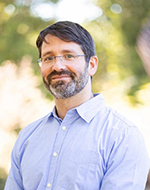Politics in Europe and the United States has been marked by increasing polarization, political violence, and democratic backsliding. These phenomena are not unique to these regions, as similar trends are observable in democracies all over the globe. Thus, this conference seeks to bring together a variety of scholars to explore how lessons from different political systems can inform our understanding of the causes, consequences, and potential remedies for the more deleterious effects that are becoming apparent in Europe, the US, and beyond.
Conference Date: March 3, 2025, 8:30am – 4:45pm CST
Conference Location: Annenberg Presidential Conference Center 1017
Register Here
Conference Schedule
Monday, March 3, 2025
8:30am
Coffee, fruit, and breakfast pastries
8:45
Opening remarks
9:00 – 9:45
9:50 – 10:35
“Why Depolarization is Hard: Evaluating Attempts to Decrease
Partisan Animosity“
Sean Westwood (Associate Professor, Dartmouth College)
“Are Partisan Polarization and Depolarization Driven by Policy Substance?”
Rune Slothuus (Professor, Aarhus University)
10:35 – 10:50
Break
10:50 – 11:35
“Why Masses Support Democratic Backsliding: Evidence from Israel”
Noam Gidron (Associate Professor, Hebrew University of Jerusalem and Stanford University)
11:40 – 12:25
“Polarized Attitudes and Anti-Democratic Orientation among
American Partisans”
Ariel Malka (Professor, Yeshiva University)
12:25 – 1:15
Lunch
1:15 – 2:00
“Partisan Linked Fate in the American Mass Public”
Steven Webster (Associate Professor, Indiana University)
2:05 – 2:50
“From Conflict to Cooperation: Changing Partisan Group Norms
to Reduce Polarization”
Alexa Bankert (Associate Professor, University of Georgia)
2:50 – 3:05
Break
3:05 – 3:50
“Reducing Animosity Due to Negative Ideological Identities”
Elizabeth Simas (Associate Professor, Texas A&M University)
3:55 – 4:40
“How Anger Affects Political Participation: The Moderating Role of Trait Aggression”
Scott Clifford (Associate Professor, Texas A&M University)
Bradley Madsen (PhD Candidate, Texas A&M University)
Conference Speakers

Alexa Bankert
Associate Professor, University of Georgia
Alexa Bankert is an Associate Professor in the Department of Political Science at the University of Georgia. She completed her B.A. in Political Science at the Freie Universität Berlin and the University of Pennsylvania in 2011, and earned her Ph.D. in Political Science from Stony Brook University in 2016.
She is the author of the book “When Politics Becomes Personal: The Effect of Partisan Identity on (Anti-)Democratic Behavior,” published by Cambridge University Press in January 2024. Alexa’s research has also been featured in peer-reviewed journals such as the Journal of Politics, Political Psychology, Political Behavior, and the British Journal of Political Science. Her current research delves into the development and impact of negative partisanship and intra-party norms on political behavior.
Alexa has received several notable awards, including APSA’s Distinguished Junior Scholars Award, APSA’s John Sullivan Award, and the Janet Box-Steffensmeier Award for Outstanding Female Graduate Students in Methodology. Since 2024, Alexa has also served as the Undergraduate Program Coordinator for Political Science at the University of Georgia.

Scott Clifford
Associate Professor, Texas A&M University
Dr. Scott Clifford is an expert on public opinion, political psychology, and survey and experimental methods. His research focuses on topics such as what causes someone to view politics in moral terms, how moral values affect public opinion, and how politicians appeal to or manipulate the public’s moral views. He has published more than 40 peer-reviewed journal articles in outlets such as the American Political Science Review, American Journal of Political Science, and the Journal of Politics. He currently serves as the co-editor-in-chief at the Journal of Experimental Political Science.

Noam Gidron
Associate Professor, Hebrew University of Jerusalem and Stanford University
Noam Gidron is an associate professor at the Department of Political Science and the Program in Politics, Philosophy and Economics at the Hebrew University of Jerusalem. His research interests lie at the intersection of political behavior and political economy, with a substantive focus on populism, polarization and democratic backsliding.

Ariel Malka
Professor, Yeshiva University
Ariel Malka is a professor of psychology and political science at Yeshiva University who does research in political psychology, public opinion, and survey measurement. His work addresses the psychological and contextual underpinnings of political preferences, citizens’ commitment to democracy and openness to authoritarian actions, and various matters pertaining to self-report measurement and the survey response process.

Elizabeth Simas
Associate Professor, Texas A&M University
Dr. Simas is an expert on American political behavior, with a particular focus on elections and voting. She is the author of the Cambridge University Press monograph In Defense of Ideology: Reexamining the Role of Ideology in the American Electorate and over two dozen articles that have been featured in such outlets as the American Political Science Review, the American Journal of Political Science, and the Journal of Politics. Dr. Simas is currently an associate editor of the Journal of Experimental Political Science and serves on the editorial board of Electoral Studies. In addition, she is an award-winning instructor who teaches a variety of classes in the American politics subfield.

Rune Slothuus
Professor, Aarhus University
Rune Slothuus is a professor of political science at Aarhus University, Denmark. He studies how ordinary people understand politics and form political opinions, focusing on topics like partisan polarization, motivated reasoning, persuasion and party cue effects. His current project, funded by the European Research Council (ERC), investigates how citizens use political parties as signposts to make sense of policies on complex issues like climate change, immigration and social welfare. Slothuus’ research has received multiple awards and been published in journals including American Political Science Review, American Journal of Political Science and Journal of Politics.

Steven Webster
Associate Professor, Indiana University
I am an Associate Professor of Political Science at Indiana University. My research focuses on the nature of political behavior and public opinion within the United States. More specifically, I study the forces driving mass polarization; how voters form perceptions of political actors, such as candidates, parties, and related political entities; and how signals from party elites shape voters’ beliefs and attitudes. In order to shed light on these questions I draw on theories from both political science and psychology.

Sean Westwood
Associate Professor, Dartmouth College
Sean is an Associate Professor in the Department of Government at Dartmouth College and director of the Polarization Research Lab (PRL). His primary area of research is political behavior and public opinion. His work focuses on understanding where partisan biases originate, where they manifest (inside and outside political domains), and their bounds. He is particularly interested in examining how partisanship and information from political elites affect the behavior of citizens. He has expertise in both survey methods and computational social science. His work has been published in journals including Proceedings of the National Academy of Sciences, American Political Science Review, Nature Human Behavior, and the American Journal of Political Science.

